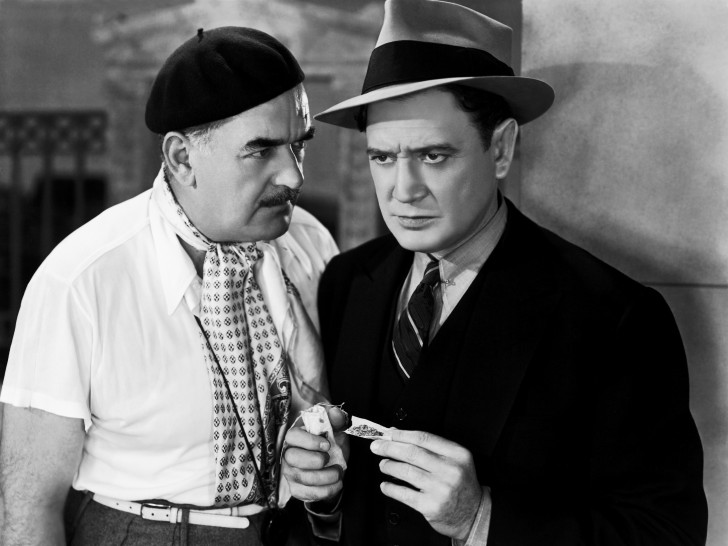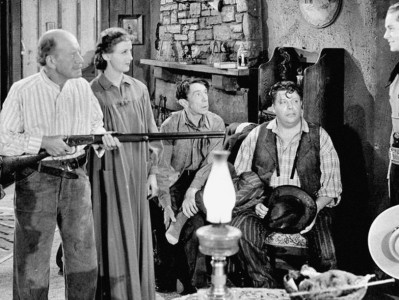
It Happened in Hollywood
The Fargo Kid
An affectionate valentine to Tinseltown that nevertheless remains clear-eyed about the perils and strange paradoxes of stardom, It Happened in Hollywood was directed by the little-known post-Impressionist painter-turned-director Harry Lachman, but is better recognized as a striking expression of Samuel Fuller’s first Hollywood career as a successful and always brilliantly imaginative screenwriter. Perennial tough guy Richard Dix is wonderfully cast as a silent cowboy star whose oversized heart gives him trouble when his career plummets with the arrival of sound, and he can no longer keep his pledge to a sickly young fan he had once invited to his now-lost cattle ranch. A standout climactic scene of a picnic staged with actual stand-ins for the stars casts an ersatz W.C. Fields and Greta Garbo, among others, for a remarkable, almost Surrealist, gag that also gives touching homage to the Dream Factory’s unsung workers. Only Fuller could have invented the film’s eccentrically twisting plot that speaks with unexpected wit and poignancy about the fragile lives of actors washed up by the ever-shifting tides of Hollywood caprice.
Remembered today for his prominent roles in The Magnificent Ambersons and The Treasure of the Sierra Madre, Tim Holt was better known during his career as the popular star of more than forty B-Westerns made at RKO, cast by Welles and Huston precisely because of his upstanding cowboy persona. Holt’s boyish and likeable screen presence made him an ideal replacement for RKO’s earlier Western star, the chivalrous George O’Brien, and allowed him to glide across the melding of violent action-adventure, light comedy and song that remained a standard formula of Holt’s often compelling oaters. Only the second of Holt’s RKO Westerns, The Fargo Kid mines a more comedic vein than other entries, following Holt as a wandering cowpoke mistaken for a notorious gunslinger without his even noticing, until it is almost too late. In the role of Holt’s friend is country songwriter and singer Ray Whitley who wrote the famous Western ballad made immortal by Gene Autry, “Back in the Saddle Again,” and remained a staple of the singing cowboy films.










































